The thought-provoking “Sharing is Caring” credo is applicable in many cases, but not all. And that is what law enforcement authorities are trying to express to do-gooders who, albeit trying to help, may be committing crimes. A viral video blazed trails across social media recently. It depicted footage of an adult male sexually abusing a young child. While the barbaric video is horrific, resending it to possibly identify the depraved violator and save the child-victim is against some laws…and law enforcement noticed the unwitting mishaps.
Aside from the “Judges, attorneys and cops know all laws” rhetoric, it may seem monumental to expect every citizen to be cognizant of the statutes book(s). Whether idealist or realist, it is a ton of legal material.
Polk County, Florida Sheriff Grady Judd took to his agency’s Facebook page and posted the following foreboding bulletin: “If you should come across images or videos depicting a child being physically or sexually abused, PLEASE DO NOT SHARE those images or videos. Images and videos depicting the sexual abuse of a child are considered child pornography. Sharing them, even if your intent is to try to help, is a crime, and continues to victimize the child.”
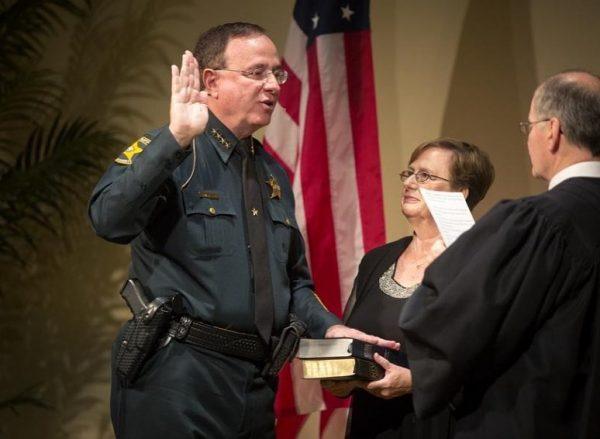
Instead, Sheriff Judd directs all folks with such graphic and sensitive information to “submit a tip about images or videos containing child pornography to the National Center for Missing and Exploited Children via their secure cyber-tip line” which are https://www.missingkids.org/gethelpnow/cybertipline or www.cybertipline.com. Online tips are disseminated to the appropriate law enforcement entity.
“Submit a tip about images or videos containing child pornography to the National Center for Missing and Exploited Children via their secure cyber-tip line” –Sheriff Grady Judd
“We continue to receive dozens of private messages each day in reference to an absolutely horrific image & video that is being shared via social media, beginning sometime around Jan 30th, and up until this afternoon. It is our understanding that Alabama law enforcement authorities, including their Internet Crimes Against Children Task Force, have identified the suspect and the victim, and that the victim is safe. We don’t have any information on whether or not an arrest has been made but we are hopeful. If you should come across the image, which is too disturbing to describe but depicts a small child being abused by an adult male, please rest assured that it has been reported & is actively being investigated,” Sheriff Judd assured.
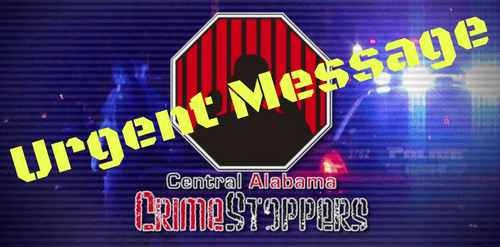
The best way to directly help law enforcement build cases is to supply information gleaned from social media, not spread it against laws precluding such action.
The FBI is the preeminent law enforcement agency investigating cases of sexual assaults/exploitation of children and all violations thereof, to include cyber-crime facilitated via the internet.
In the context of the public reporting such atrocities and abuses against children, the cyber-tip line tallied in excess of 12.7 million reports of alleged child sexual exploitation between 1998-2016.
“Members of the public are encouraged to report information regarding possible child sexual exploitation to the CyberTipline,” the National Center for Missing and Exploited Children (NCMEC) website beckoned. “You may also wish to report the incident to federal, state, or local law enforcement personnel,” admonished the Department of Justice website.
The best way to directly help law enforcement build cases is to supply information gleaned from social media, not spread it against laws precluding such action.
Between legitimate agencies designed to receive/investigate inexplicable abuses against children, and any social media engine one chooses to spread illicit material, what is the crux of getting into trouble with the law?
The US Department of Justice (DoJ) concisely defines the cyber-based crime of child pornography: “Images of child pornography are not protected under First Amendment rights, and are illegal contraband under federal law. Section 2256 of Title 18, United States Code, defines child pornography as any visual depiction of sexually explicit conduct involving a minor (someone under 18 years of age). Visual depictions include photographs, videos, digital or computer generated images indistinguishable from an actual minor, and images created, adapted, or modified, but appear to depict an identifiable, actual minor [emphasis added].”
Whether one is the actor/producer (sexual deviant and definitive violator) or the otherwise-innocent person dispersing such material (even in the interest of justice), laws prohibit witting and unwitting spread of any media via any methods. Does that include police sites designed to receive complaints of crime?
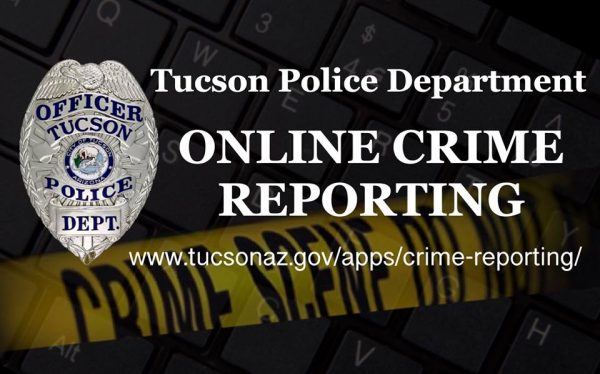
Despite police departments which have preformatted, online crime reporting databases, it is always best to complete the complaint and merely suggest you saw evidence upon so-and-so channel(s) and/or where such evidence can be legally obtained. Direct police to the source and let them handle it from there. The key is siding with caution, since not everyone is a lawyer.
Section 2260 of Title 18, United States Code “prohibits any persons outside of the United States to knowingly produce, receive, transport, ship, or distribute child pornography with intent to import or transmit the visual depiction into the United States.” Note the words knowingly and distribute in that legal definition. Although that federal code expressly says “any persons outside the united States” it synonymously applies to citizens within US borders.
Florida state statute (FSS) 847.0137 “Transmission of pornography by electronic device or equipment prohibited” holds that (b) “Transmit” means the act of sending and causing to be delivered any image, information, or data from one or more persons or places to one or more other persons or places over or through any medium, including the Internet, by use of any electronic equipment or device” and subsection (2) delineates that “any person in this state who knew or reasonably should have known that he or she was transmitting child pornography, as defined in s. 847.001, to another person in this state or in another jurisdiction commits a felony of the third degree.”
“Any person in this state who knew or reasonably should have known that he or she was transmitting child pornography to another person in this state or in another jurisdiction commits a felony of the third degree.”
Thus merely recognizing child pornography material and disseminating it upon social media sites in attempts to identify and report such monsters can land one in a court of law, defensively. How does one avoid such a consequence and not cross that line? Besides the NCMEC cyber tip-line we referenced above, notifying law enforcement is the (legitimate) option.
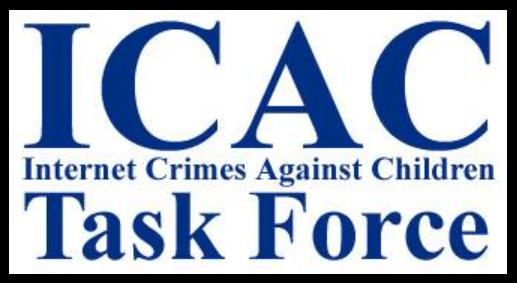
How and why does federal law enforcement get involved in investigating child pornography? The answer is largely jurisdictional and meridian. “Federal jurisdiction is implicated if the child pornography offense occurred in interstate or foreign commerce. This includes, for example, using the U.S. Mails or common carriers to transport child pornography across state or international borders. Additionally, federal jurisdiction almost always applies when the Internet is used to commit a child pornography violation. Even if the child pornography image itself did not travel across state or international borders, federal law may be implicated if the materials, such as the computer used to download the image or the CD-ROM used to store the image, originated or previously traveled in interstate or foreign commerce.”
Take it one giant leap further, Interpol gets involved where child pornography is dispersing from the remotest to the most-populace corners of the globe, even via innocent means. US code exists to combat distant origins of child pornography and the spread of explicit materials.
As mentioned earlier: Section 2260 of Title 18 US Code “prohibits any persons outside the United States to knowingly produce, receive, transport, ship, or distribute child pornography with intent to import or transmit the visual depiction into the United States.”
United States Code “prohibits any persons outside of the United States to knowingly produce, receive, transport, ship, or distribute child pornography with intent to import or transmit the visual depiction into the United States.”
Again, even well-intentioned civic responsibility to help criminal justice authorities abate online child sex exploitation materials can seem counterproductive. Avoid stepping in legal mud while trying to do the right thing. Just like the “See something, say something” mantra espoused by police, simply contact law enforcement when you deem a violation of law has occurred.
What About Civil Citations?
FSS 847.0139 states “Immunity from civil liability for reporting child pornography, transmission of child pornography, or any image, information, or data harmful to minors to a minor in this state. Any person who reports to a law enforcement officer what the person reasonably believes to be child pornography, transmission of child pornography, or any image, information, or data that is harmful to minors to a minor in this state may not be held civilly liable for such reporting. For purposes of this section, such reporting may include furnishing the law enforcement officer with any image, information, or data that the person reasonably believes to be evidence of child pornography, transmission of child pornography, or an image, information, or data that is harmful to minors to a minor in this state.”
Given the sensitivities surrounding issues involving underage folks, and how the Courts and our laws protect and preserve their identities, this statute clarifies indemnity for those who may be accused of crossing that divide. Much like the criminal-based statutes, the civil responsibilities are recognized…with the common denominator of solely contacting law enforcement and not taking maters into ones own hands.
Geojurisprudence
If you’re like me, my insights are more-often-than-not tested by research and whatever subject material I discover ranging from disparity to consensus on the spectrum of ideology and policy. This subject matter is no exception. Other nations have largely the same laws written whereby enforcement against child pornography and spreading such materials is strict. Like our statutes governing this explicit topic, laws are expressly clear regarding the dos and don’ts.
Looking at the fact that the world-wide web is named as such because it spans the globe, other nations enacted cyber crime laws as well. In the Phillipines, for example, the penalties are quite stiff for posting material deemed illegal, despite the posters knowledge-base and unwitting or feigned liability.
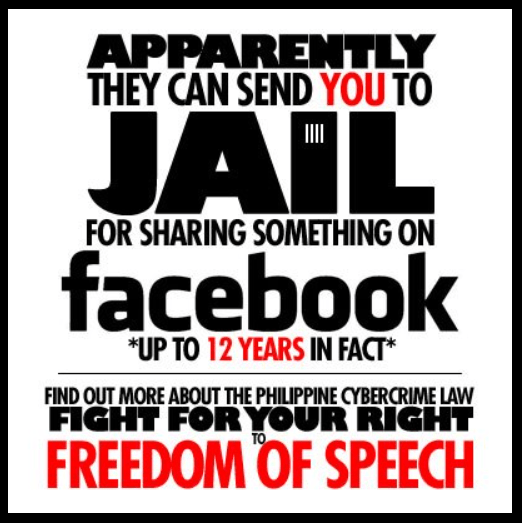
Besides federal statutes outlawing cyber-related media sharing, each state has its own laws which may result in arrest for dispersing stuff on social media. Depending on who is investigating, federal, state, county or local law enforcement will be the police entity knocking on your door. I know of no one ever arrested for such unwitting media use…but don’t be that guy or gal.
If in doubt, don’t type it out. If the material emotionally hurts, do not disperse. Notify the law.
















